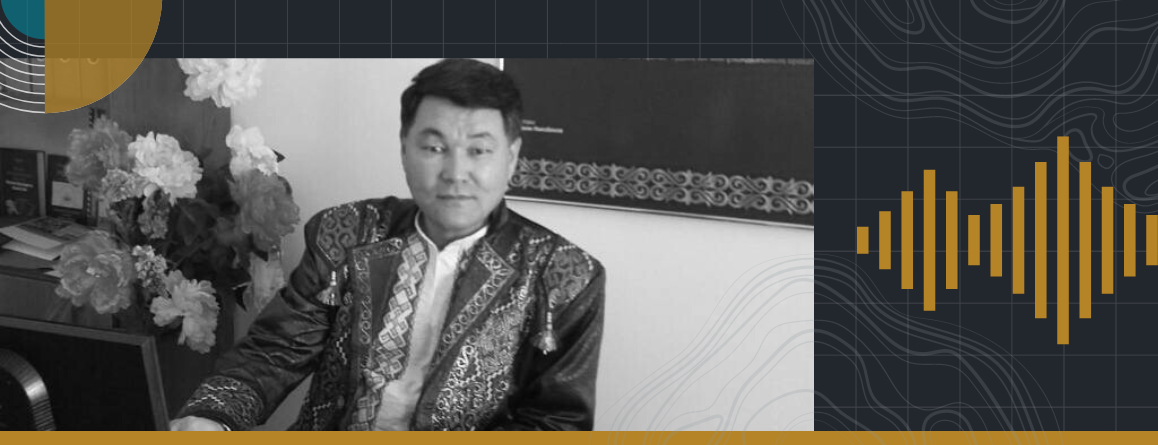Nietbai Urazbayev is an ethnic Karakalpak and a citizen of Kazakhstan had his Kazakh citizenship revoked. He is an activist and chairman of the Karakalpak Ethnocultural Association “Allayar Zholu – Aktau,” registered with the Department of Justice of the Mangystau region, Kazakhstan and advocates for the independence of the Republic of Karakalpakstan. Since 2004, he has been residing in Kazakhstan, and in 2008, he permanently moved to the city of Aktau in the Mangystau region of Kazakhstan.
In 2014, Urazbayev renounced his Uzbek citizenship and applied for Kazakh citizenship. However, on November 13, 2023, the Migration Department of the Police of the Mangystau region, Kazakhstan, notified Urazbayev that his Kazakh citizenship was revoked according to Part 2 of Article 21 of the “Law on Citizenship of the Republic of Kazakhstan” due to him allegedly providing false information or forged documents.
To understand the background of this decision and the purpose of depriving Nietbai Urazbayev’s citizenship, as well as why the migration authorities of Kazakhstan suddenly decided to scrutinize documents from a decade ago, it is necessary to focus on protests that took place in July 2022 in Karakalpakstan.
On July 1-2, 2022, Karakalpakstan’s residents peacefully protested against changes to the Constitution of Uzbekistan. The amended Constitution removed the words about the sovereignty of Karakalpakstan and its right to secede from Uzbekistan. According to the Constitution of Uzbekistan, this stance is not illegal, since Karakalpakstan has sovereignty and the right to secede from Uzbekistan.
However, after the 2022 protests, law enforcement agencies launched arrests and trials of activists, accusing them of separatism and mass disorder. Criminal proceedings were initiated against Nietbai Urazbayev, and on May 10, 2023, the Karakalpakstan’s court convicted him in absentia of crimes under Part “a,” “g” of Article 159 (Undermining the constitutional order of the Republic of Uzbekistan), Part 3 of Article 244 (Mass disorders), and Part 3 of Article 244-1 (Manufacturing, storing, distributing, or demonstrating materials containing a threat to public safety and order) of the Criminal Code. He was sentenced to 12 years in prison. The legal process against Urazbayev was conducted in absentia, and neither the law enforcement agencies of Karakalpakstan nor Uzbekistan, nor the state-appointed lawyer, contacted him regarding criminal proceedings.
Upon learning of the verdict, Nietbai Urazbayev officially appealed to the Ombudsman of the Republic of Uzbekistan, the Consulate General of the Republic of Kazakhstan in Uzbekistan, and the President of Kazakhstan, citing the illegality of the court’s decision against him. He pointed out that he was charged as a citizen of Uzbekistan, even though he had renounced Uzbek citizenship in April 2015, as confirmed by a certificate issued by the Uzbekistan Embassy in Kazakhstan on March 20, 2017.
Urazbayev has been a citizen of Kazakhstan since 2018 and the Migration department went through necessary processes of considering Urazbayev’s application before granting him citizenship. Since 2008, Nietbay has been residing in Aktau with his family, working as a civil engineer, paying taxes, and is a law-abiding citizen.
Moreover, he has submitted an Uzbek passport to the Uzbek Embassy in Kazakhstan when renouncing his Uzbek citizenship in 2017. After that Urazbayev did not register with the consulate as required by Uzbek citizenship law. In accordance with Uzbek Citizenship Law Article 25 an Uzbek citizenship is lost if a citizen fails to register with the consulate within 3 years before 2020 and since the 2020 amendments to the law the period was within seven years. In both cases Urazbayev’s Uzbek citizenship would have been cancelled without the need of any steps from him in 2017 due to his failure to register with the consulate. Given that he has been residing in Kazakhstan without registering with the consulate the citizenship would have been long lost according to the Uzbek law.
It is clear that Uzbek authorities are using the pretext of Urazbayev’s citizenship in order to extradite him to Uzbekistan. Moreover, it is known that in 2019 Uzbek consular in Aktau threatened Urazbayev that his citizenship will be restored if he continues to refuse cooperation with the Uzbek consulate. Urazbayev has also travelled to Karakalpakstan in 2018-2021 with his Kazakh passport and this never raised any questions during border crossing.
The sudden deprivation of Nietbai Urazbayev’s Kazakh citizenship due to providing false documents during the naturalization process, raises many questions. It appears more like an attempt to appease Uzbekistan instead of protecting the rights of a Kazakh citizen. If an extradition request is received from Uzbekistan regarding Urazbayev, Kazakhstan could extradite him at any time. However, Kazakhstan must remember its international obligations prohibiting the extradition of an individual to a country where they may face torture, cruel treatment, or unlawful criminal prosecution. Considering the procedural violations during the investigation and trial, there are no guarantees of fair trial for Nietbai Urazbayev.
Freedom for Eurasia calls on the authorities of Kazakhstan to review the deprivation of Nietbai Urazbayev’s citizenship and provide him with full support and protection against unlawful prosecution in the Republic of Uzbekistan.
